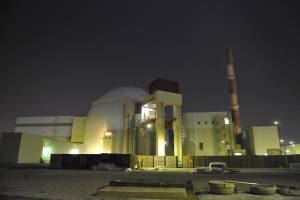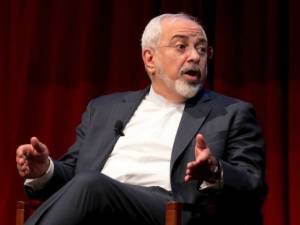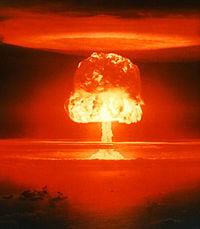
Iran’s nuclear plant in Bushehr. (AP/ISNA, Mehdi Ghasemi)
As it negotiates over its nuclear program with the P5+1 nations, Iran remains steadfast in its refusal to allow international inspectors access to suspected nuclear sites.
The deadline for a final nuclear deal between Iran and the P5+1 is nearing, yet the Iranian leadership remains defiant by insisting that it will not admit international inspectors to its military sites.
Iranian Supreme Leader Ayatollah Ali Khamenei repeated on Wednesday that Iran will not allow any inspections of its military facilities, the Iranian IRNA news site reported.
“They [the West] say they must receive permission to conduct interviews with Iran’s nuclear scientists, and I say this means interrogation. I will not permit foreigners to come and interview scientists of this nation who have reached this level of nuclear knowledge,” Khamenei declared.
As for the crisis in Yemen and the advance of the Islamic State (ISIS) in Iraq, Khamenei said he was informed that enemies, assisted by “certain stupid officials in the Persian Gulf region,” are determined to drag proxy wars close to the Iranian borders, and he warned that a military threat on Iran would be met with a fierce and violent response. “They should realize that Iran’s response to any evil move will be very harsh,” he asserted.
After meeting with his Hungarian counterpart, Iranian Foreign Minister Mohammad Javad Zarif on Monday rejected the idea of inspections of the country’s military sites, which, international bodies believe, include nuclear development.

Iranian Foreign Minister Zarif (AP/Richard Drew)
Zarif said that Tehran’s approach to international relations was based on “mutual respect and protection of national interests” and that Iran “should be treated like other countries bound to international regulations.”
Last week, UN International Atomic Energy Agency (IAEA) head Yukia Amano said that the nuclear agreement being worked on by Iran and the P5+1 powers would give the IAEA experts the right to push for access to Iranian military sites.
Behrouz Kamalvandi, spokesman for the Atomic Energy Organization of Iran (AEOI), rejected this notion. The Islamic Republic has not approved nor implemented the Additional Protocol, which would allow the agency’s inspectors significantly more access than they have now, Kamalvandi said. According to the provisions of the Protocol, there is no specific obligation for signatory countries to allow access to their military sites, he added.
Iran claims that opening up such sites could lead to spying on its military assets.
Iran’s refusal to allow access to its suspected nuclear sites could lead to a crisis if the agency tries for access once a deal is struck and Iran turns it down. David Albright of the Institute for Science and International Security says that Iran’s non-compliance may prove to be a deal breaker.
By: Max Gelber, United with Israel
Sign the Petition to Stop a Nuclear Iran

The US Congress must ensure that sanctions against Iran remain in force until the nuclear threat is completely eliminated.
I strongly oppose easing sanctions before the nuclear threat from Iran has been eliminated. Allowing Iran to enrich uranium without being subject to 'anytime, anywhere' inspections is extremely dangerous and unacceptable. Iran's nuclear program must be stopped.
CLICK HERE TO SIGN THE PETITION TO STOP IRAN
Do You Love Israel? Make a Donation - Show Your Support!
Donate to vital charities that help protect Israeli citizens and inspire millions around the world to support Israel too!
Now more than ever, Israel needs your help to fight and win the war -- including on the battlefield of public opinion.
Antisemitism, anti-Israel bias and boycotts are out of control. Israel's enemies are inciting terror and violence against innocent Israelis and Jews around the world. Help us fight back!
